Felicity Solar Price List PDF in Nigeria
Felicity Solar Nigeria is one of the most popular solar energy brands in Nigeria, known for producing high-quality solar panels, lithium batteries, inverters, and MPPT charge controllers at affordable prices. Whether you’re building a small home solar system or a large commercial installation, Felicity offers reliable products that fit different budgets and needs.
FELICITY SOLAR PRICE LIST PDF
(GET LATEST PRICE LIST PDF ON WHATSAPP: 09040054359)
In this updated 2025 Felicity Price List, you’ll find the latest Felicity Solar price list in Nigeria with estimated market prices, features, and where to buy original products. All Products is Original – Felicity Solar Nigeria 🇳🇬
Showing 1–30 of 35 resultsSorted by latest
-
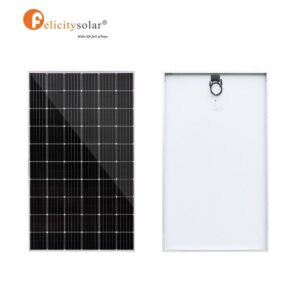
Solar Panel (11)
-
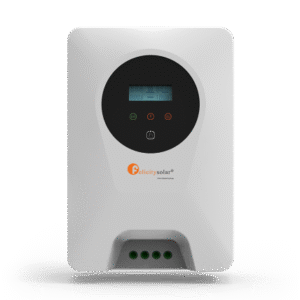
Charge Controller (6)
-
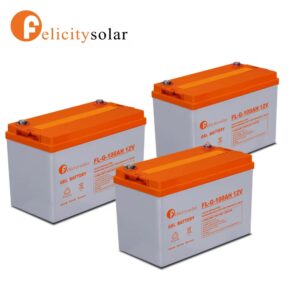
Gel Battery (4)
-
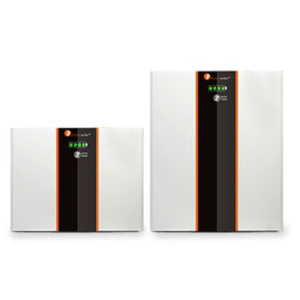
Lithium Battery (12)
-
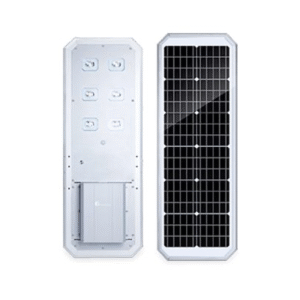
Street Lights (2)
-
Sale!
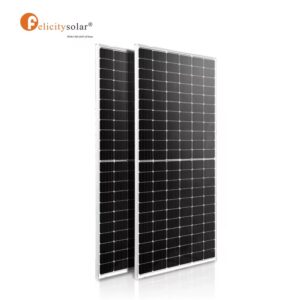
680W Felicity Solar Panel
Original price was: ₦155,000.00.₦140,000.00Current price is: ₦140,000.00. Add to cart -
Sale!
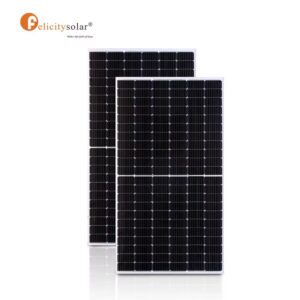
550W Felicity Solar Panel Price in Nigeria
Original price was: ₦145,000.00.₦135,000.00Current price is: ₦135,000.00. Add to cart -
Sale!
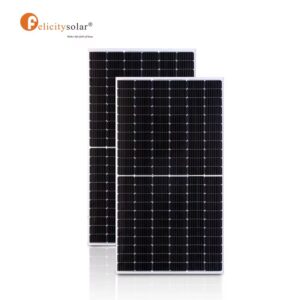
540W Felicity Solar Panel
Original price was: ₦140,000.00.₦130,000.00Current price is: ₦130,000.00. Add to cart -
Sale!
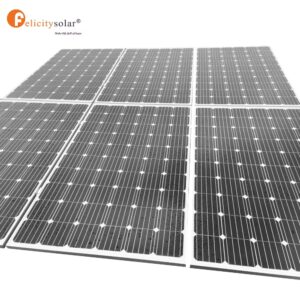
325W Felicity Solar Panel
Original price was: ₦96,000.00.₦90,000.00Current price is: ₦90,000.00. Add to cart -
Sale!
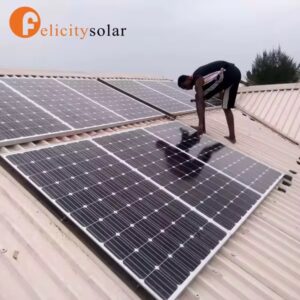
400W Felicity Solar Panel
Original price was: ₦135,000.00.₦120,000.00Current price is: ₦120,000.00. Add to cart -
Sale!
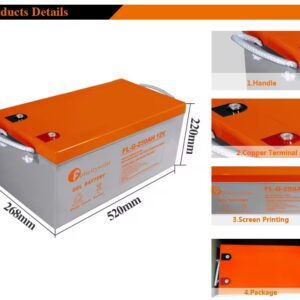
12V 250Ah Felicity Gel Battery
Original price was: ₦320,000.00.₦310,000.00Current price is: ₦310,000.00. Add to cart -
Sale!
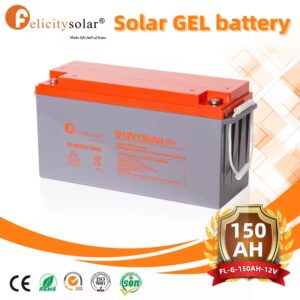
12V 150Ah Felicity Gel Battery
Original price was: ₦295,000.00.₦280,000.00Current price is: ₦280,000.00. Add to cart -
Sale!
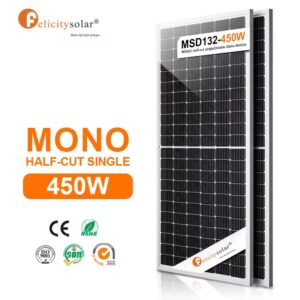
450W Felicity Solar Panel
Original price was: ₦135,000.00.₦125,000.00Current price is: ₦125,000.00. Add to cart -
Sale!
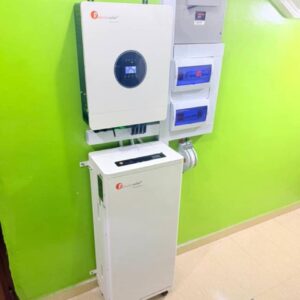
15KWH Felicity Lithium Battery (Flat Model)
Original price was: ₦2,550,000.00.₦2,400,000.00Current price is: ₦2,400,000.00. Add to cart -
Sale!
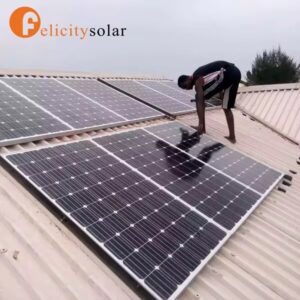
260W Felicity Solar Panel
Original price was: ₦95,000.00.₦85,000.00Current price is: ₦85,000.00. Add to cart -
Sale!
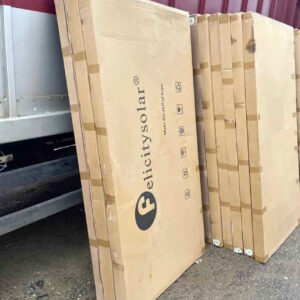
350W Felicity Solar Panel
Original price was: ₦120,000.00.₦110,000.00Current price is: ₦110,000.00. Add to cart -
Sale!
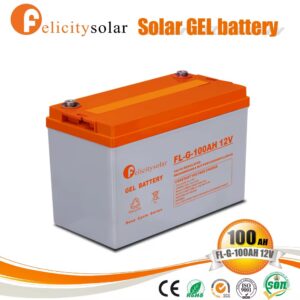
12V 100Ah Felicity Gel Battery
Original price was: ₦275,000.00.₦260,000.00Current price is: ₦260,000.00. Add to cart -
Sale!
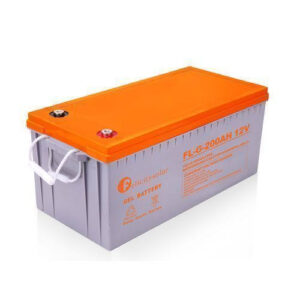
12V 200Ah Felicity Gel Battery
Original price was: ₦302,000.00.₦295,000.00Current price is: ₦295,000.00. Add to cart -
Sale!
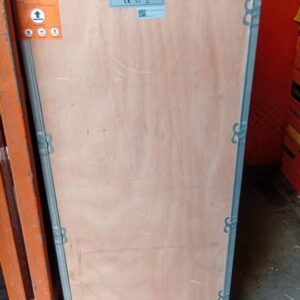
48V 15KWH Felicity Solar Battery
Original price was: ₦2,450,000.00.₦2,250,000.00Current price is: ₦2,250,000.00. Add to cart -
Sale!
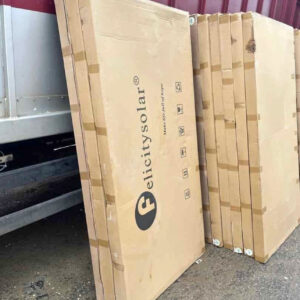
300W Felicity Solar Panel
Original price was: ₦110,000.00.₦100,000.00Current price is: ₦100,000.00. Add to cart -
Sale!

280W Felicity Solar Panel
Original price was: ₦100,000.00.₦90,000.00Current price is: ₦90,000.00. Add to cart -
Sale!
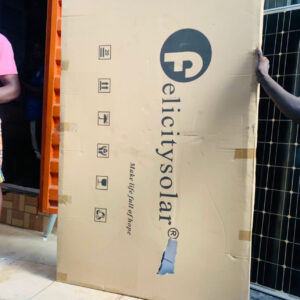
175W Felicity Solar Panel
Original price was: ₦90,000.00.₦80,000.00Current price is: ₦80,000.00. Add to cart -
Sale!
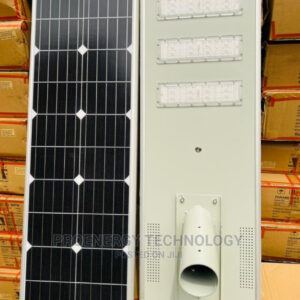
P2 60W All in One Street Light
Original price was: ₦185,000.00.₦175,000.00Current price is: ₦175,000.00. Add to cart -
Sale!
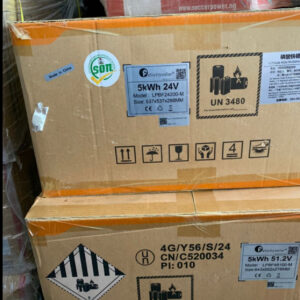
24V 5KWH Lithium Battery
Original price was: ₦1,200,000.00.₦1,100,000.00Current price is: ₦1,100,000.00. Add to cart -
Sale!
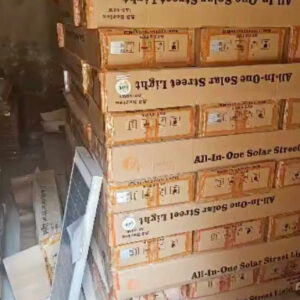
A3-40W Street Light
Original price was: ₦145,000.00.₦140,000.00Current price is: ₦140,000.00. Add to cart -
Sale!
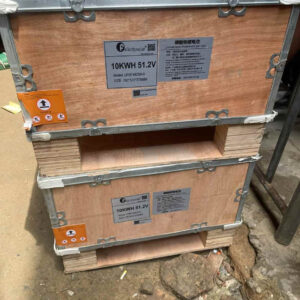
10kWh Felicity Lithium Battery
Original price was: ₦1,800,000.00.₦1,750,000.00Current price is: ₦1,750,000.00. Add to cart -
Sale!
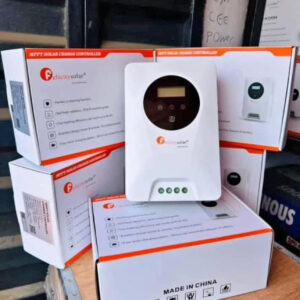
120A Felicity Charge Controller
Original price was: ₦300,000.00.₦290,000.00Current price is: ₦290,000.00. Add to cart -
Sale!
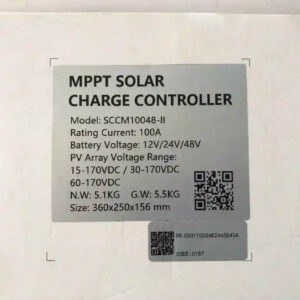
100A Felicity Charge Controller
Original price was: ₦280,000.00.₦270,000.00Current price is: ₦270,000.00. Add to cart -
Sale!
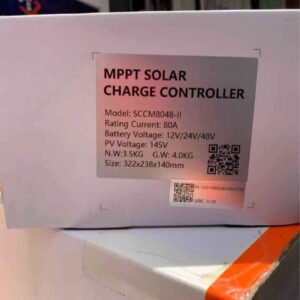
80A Felicity Charge Controller
Original price was: ₦210,000.00.₦195,000.00Current price is: ₦195,000.00. Add to cart -
Sale!
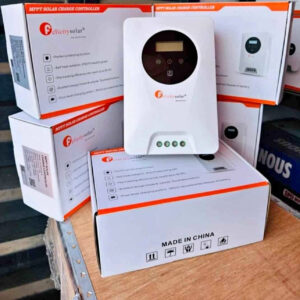
60A Felicity Charge Controller
Original price was: ₦175,000.00.₦170,000.00Current price is: ₦170,000.00. Add to cart -
Sale!
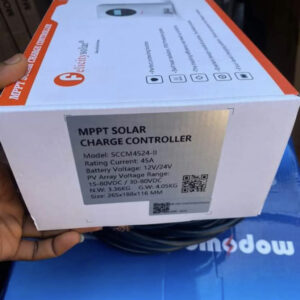
45A Felicity Charge Controller
Original price was: ₦160,000.00.₦150,000.00Current price is: ₦150,000.00. Add to cart -
Sale!
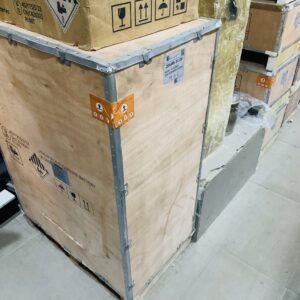
Felicity 25kWh Lithium Battery
Original price was: ₦3,400,000.00.₦3,100,000.00Current price is: ₦3,100,000.00. Add to cart -
Sale!
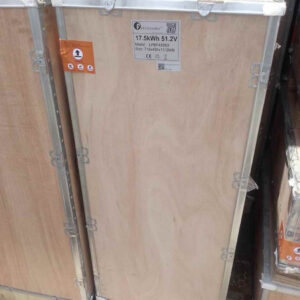
Felicity 17.5kWh Lithium Battery
Original price was: ₦2,750,000.00.₦2,650,000.00Current price is: ₦2,650,000.00. Add to cart -
Sale!
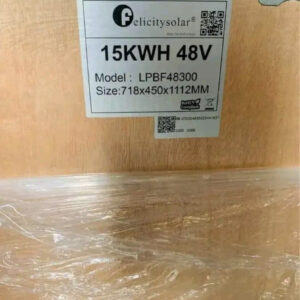
Felicity 15kWh Lithium Battery
Original price was: ₦2,700,000.00.₦2,200,000.00Current price is: ₦2,200,000.00. Add to cart -
Sale!
![30A Felicity Charge Controller [MPPT] Price in Nigeria Jiji jumia Alaba International Market 30A Felicity Charge Controller [MPPT] Price in Nigeria Jiji jumia Alaba International Market](https://felicitysolarprice.com.ng/wp-content/uploads/2025/08/IMG_9568-300x300.jpeg)
30A Felicity Charge Controller [MPPT]
Original price was: ₦105,000.00.₦95,000.00Current price is: ₦95,000.00. Add to cart
🔋 Felicity Lithium Battery Prices in Nigeria
| Product | Capacity | Price Range (₦) |
| Felicity 12.5KWH Lithium Battery | 48V / 250Ah | ₦2,850,000 – ₦3,500,000 |
| Felicity 5KWH Lithium Battery | 48V / 100Ah | ₦1,250,000 – ₦1,500,000 |
| Felicity 2.5KWH Lithium Battery | 24V / 100Ah | ₦650,000 – ₦800,000 |
Felicity Lithium Battery Price in Nigeria: Your Comprehensive Guide
Nigeria’s demand for dependable power solutions grows daily. Many homes and businesses battle the unstable public electricity supply. This need makes modern power sources essential. Lithium batteries stand out as an efficient and lasting choice compared to older options.
Consumers need clear information on pricing. Brands like Felicity offer good quality batteries. This guide gives a clear and full overview of Felicity lithium battery prices in Nigeria. It helps you make smart buying choices.
Lithium batteries offer many benefits. They last longer and work more efficiently. Their environmental impact is also much lower. These advantages make them a top choice for future power needs.
Understanding Felicity Lithium Battery Technology
The Science Behind Lithium Batteries
Lithium-ion batteries store energy through chemical reactions. They move lithium ions between two electrodes. These electrodes are the cathode and anode. A liquid electrolyte carries the ions. A separator stops the electrodes from touching.
This process gives them clear advantages over lead-acid batteries. Lithium batteries have higher energy density. This means they store more power for their size. They also last much longer. Plus, they weigh less, making them easier to handle and install.
Felicity’s Lithium Battery Offerings
Felicity provides a range of lithium batteries in Nigeria. You can find them in many capacities. Common sizes include 100 amp-hours (Ah) and 200 Ah. These capacities suit different energy needs.
They also come in various voltage setups. You can choose from 12V, 24V, or 48V systems. Felicity often uses Lithium Iron Phosphate (LiFePO4) chemistry. This type offers great safety and a long cycle life.
Factors Influencing Felicity Lithium Battery Prices in Nigeria
Battery Capacity and Voltage
The capacity of a battery greatly affects its price. A higher amp-hour (Ah) rating means more energy storage. More materials and production costs increase the price. For instance, a 200Ah battery will cost more than a 100Ah one.
Higher voltage systems also cost more. A 48V battery needs more individual cells. It also includes a more complex battery management system (BMS). These elements boost the overall price.
Battery Chemistry and Quality
The type of lithium chemistry used is important for price. LiFePO4 batteries are very popular. They are known for their safety and long life. Their thermal stability also adds to their value. This often means a higher price tag.
The quality of internal parts matters too. High-grade cells, a robust BMS, and a strong casing ensure durability. Better components will always lead to a higher retail price.
Brand Reputation and Warranty
Felicity has built a name for itself in the power sector. Established brands often charge more. This is because people trust their quality. A good brand name suggests reliability and performance.
A longer warranty period adds value to the product. It shows the manufacturer’s trust in their battery. Longer warranties can mean a slightly higher upfront cost. However, they provide peace of mind for years.
Supplier and Retailer Markups
The price you pay includes various supply chain costs. Importers and distributors add their own costs. They cover shipping, customs duties, and logistics. Retailers then add their profit margins.
Prices can vary between sellers. Online marketplaces might offer different deals. Physical stores have overheads like rent and staff wages. These factors influence the final consumer price.
Current Felicity Lithium Battery Price Ranges in Nigeria
Estimated Price Ranges by Capacity (12V Systems)
Prices for Felicity lithium batteries can change. We offer estimates for common 12V batteries. A 100Ah 12V Felicity battery might cost between ₦300,000 and ₦450,000. Prices depend on the seller and current market.
For a 200Ah 12V Felicity battery, expect to pay more. These often range from ₦600,000 to ₦850,000. Always check with various vendors for the latest figures. These ranges provide a good starting point for your budget.
Estimated Price Ranges for Higher Voltage Systems (24V/48V)
Higher voltage Felicity systems cost more than 12V options. For example, a 24V battery often doubles the cost of its 12V counterpart. A 48V system will be significantly higher still. These larger batteries power bigger solar setups or industrial loads.
Many 24V and 48V configurations are for specialized projects. They are usually not off-the-shelf purchases. Their pricing can also reflect customization or installation services.
Where to Find Felicity Lithium Batteries in Nigeria
You can find Felicity lithium batteries from several sources. Major electronics retailers often stock them. Look for stores specializing in power solutions. Solar power installation companies are also key suppliers. They often include batteries as part of a complete system.
Online marketplaces like Jumia and Konga list Felicity products. Be sure to check seller ratings. Dedicated battery and power stores across Nigeria also carry these batteries. Always verify the seller’s reputation before buying.
Comparing Felicity Lithium Batteries to Alternatives in Nigeria
Felicity vs. Other Lithium Brands
Felicity batteries hold a strong position in the Nigerian market. Other lithium brands also compete for attention. Felicity generally offers good value for its price and features. Some brands might offer slightly lower prices but could have shorter warranties.
Others might target high-end custom installations. They might come with different features or slightly varying chemistries. Felicity often strikes a balance. This balance includes cost, performance, and reliability.
Felicity Lithium vs. Lead-Acid Batteries
Comparing Felicity lithium batteries to lead-acid types reveals key differences. The initial purchase price for a Felicity lithium battery is higher. However, its lifespan is much longer. A LiFePO4 battery can offer 6,000 cycles or more. Traditional lead-acid batteries typically manage only 500 to 1,500 cycles.
This means you replace lithium batteries far less often. They also need almost no maintenance. Lead-acid batteries need regular checks and water topping. Lithium batteries are more efficient, wasting less energy during charging and discharging. Over time, the higher upfront cost of Felicity lithium often pays off.
Maximizing Your Investment: Tips for Buying and Using Felicity Lithium Batteries
How to Verify Authenticity
Buying from authorized dealers is the best way to avoid fake batteries. Always check for genuine serial numbers. Look for manufacturer holograms or unique product codes. These signs help ensure you get a real Felicity product.
Inspect the packaging carefully. Poor packaging quality might signal a counterfeit. Check the battery’s build quality itself. Genuine products show attention to detail.
Understanding Warranty and After-Sales Support
Before you buy, know the warranty terms. Understand how long the warranty lasts. Know what it covers and what it does not. Ask about the process for making a warranty claim.
Check for local support options. Does Felicity have service centers in Nigeria? Good after-sales support ensures help is available if issues arise. This provides crucial peace of mind.
Best Practices for Battery Care and Maintenance
Proper charging extends battery life. Always use chargers that are compatible with lithium batteries. Avoid letting the battery fully discharge often. Deep discharges can shorten its life.
Protect your battery from extreme heat or cold. These conditions can hurt performance. The built-in Battery Management System (BMS) helps keep the battery safe. Make sure it functions correctly. Following these steps helps your Felicity battery last for years.
Conclusion
The price of a Felicity lithium battery in Nigeria depends on several factors. Battery capacity, chemistry, brand reputation, and supplier markups all play a part. Lithium technology offers great value through its efficiency and long life.
We have explored estimated price ranges for different Felicity models. These ranges help you plan your purchase. Always make informed decisions. Think about the battery’s long-term value, not just the initial cost.
With this knowledge, you can confidently research and compare options. Purchase the right Felicity lithium battery for your specific needs. Equip your home or business with reliable, modern power.
⚡ Felicity Inverter Price in Nigeria
| Model | Capacity | Price Range (₦) |
| Felicity 3.5kVA Hybrid Inverter | 24V / 48V | ₦300,000 – ₦400,000 |
| Felicity 5kVA Hybrid Inverter | 48V | ₦420,000 – ₦550,000 |
| Felicity 10kVA Hybrid Inverter | 48V / 96V | ₦800,000 – ₦1,000,000 |
Felicity Inverter Price in Nigeria: Your Comprehensive Guide to Costs and Value
Nigeria’s inconsistent power supply necessitates robust backup power solutions for both residential and commercial applications. Felicity inverters are a prominent brand known for their performance and reliability. Understanding the financial commitment for such systems is essential for informed acquisition. This guide examines the various parameters affecting Felicity inverter prices in Nigeria. It provides insight into expected expenditures and strategies for maximising investment value.
The process of determining inverter costs can be complex. Multiple models, varying capacities, and diverse retailers contribute to price discrepancies. This document aims to clarify the costs associated with Felicity inverters in Nigeria. It offers a clear overview for prospective buyers. The article details different inverter types, capacity considerations, and potential additional expenses. This ensures complete information for effective budgeting of a power backup system.
Understanding Felicity Inverter Price Factors in Nigeria
Price variations for Felicity inverters stem from several core elements. These factors directly influence the final cost of an inverter unit and its associated system. Comprehensive understanding of these elements aids in accurate financial planning.
Inverter Capacity (kVA Rating)
The kilovolt-ampere (kVA) rating signifies an inverter’s power output capability. This rating has a direct correlation with the inverter’s price. Higher kVA ratings accommodate greater power demands, leading to increased costs. Different capacities serve distinct power requirements.
- Small Capacity (e.g., 600VA to 1500VA): These units provide power for essential loads. Typical applications include lighting, cooling fans, and small electronic devices. Their compact design and limited output correspond to a lower price point.
- Medium Capacity (e.g., 2000VA to 5000VA): This range supports a broader array of appliances. It handles refrigerators, televisions, and modest air conditioning units. Inverters within this capacity fall into a mid-range pricing category.
- Large Capacity (e.g., 5kVA and above): Systems of this size cater to significant power needs. They are suitable for multiple large appliances, extensive air conditioning, or industrial machinery. These high-capacity units command the highest price.
Inverter Technology (Pure Sine Wave vs. Modified Sine Wave)
Inverter technology type significantly affects both performance and cost. Two primary types exist: Pure Sine Wave and Modified Sine Wave. Pure Sine Wave inverters typically feature a higher price point.
- Pure Sine Wave Benefits: This technology produces clean, stable electrical power. It is ideal for sensitive electronics such as laptops, medical apparatus, and modern television sets. The superior power quality justifies its higher cost.
- Modified Sine Wave Considerations: These inverters are more economical. They are appropriate for basic resistive loads like incandescent lights and simple fans. However, Modified Sine Wave units may cause operational issues with certain delicate electronic devices.
Battery Requirements and Type
The battery configuration, including the number and type of batteries, profoundly impacts the total system cost. Batteries are integral to an inverter’s backup functionality. Greater battery capacity extends backup duration and increases expenditure.
- Battery Count and Configuration: More batteries are required for longer backup periods or higher discharge rates. This directly translates to higher initial system costs. System voltage requirements also influence battery quantity.
- Battery Technologies (Lead-Acid vs. Lithium-ion): Lead-acid batteries offer a lower upfront cost. Lithium-ion batteries, while initially more expensive, provide a longer operational lifespan and enhanced performance characteristics. Each technology presents different cost-benefit profiles.
Typical Felicity Inverter Price Ranges in Nigeria
Estimated price ranges for Felicity inverters vary based on capacity. These figures reflect current market trends, offering a guide for budgeting. Actual prices may differ due to vendor and market dynamics.
Entry-Level Felicity Inverters (Up to 2.5kVA)
Cost-effective Felicity inverter options are suitable for smaller residences or fundamental power requirements. These units provide basic power backup solutions.
- Estimated Price Range: Felicity inverters in this category typically range from ₦120,000 to ₦250,000.
- Typical Use Cases: These inverters are ideal for powering essential appliances. This includes a few lights, ceiling fans, and charging mobile devices or laptops.
Mid-Range Felicity Inverters (3kVA to 5kVA)
This popular segment addresses the needs of average Nigerian households. These inverters support a moderate number of electrical appliances. They offer a balance between capacity and cost.
- Estimated Price Range: Mid-range Felicity inverters usually fall between ₦280,000 and ₦550,000.
- Appliance Load Considerations: This capacity range can effectively run refrigerators, televisions, a small air conditioner, and multiple lights and fans. Careful load calculation remains critical.
High-Capacity Felicity Inverters (7.5kVA and Above)
Premium inverter systems are designed for larger homes, offices, or businesses. They meet substantial power demands requiring robust backup solutions. These units represent a significant investment.
- Estimated Price Range: High-capacity Felicity inverters typically start from ₦600,000 and can exceed ₦1,500,000.
- Business and Commercial Applications: Such powerful inverters are suitable for comprehensive home automation, powering multiple air conditioning units, or supporting small business operations. This includes server rooms and larger office equipment.
Additional Costs Associated with Felicity Inverters
Beyond the primary inverter unit, several other components and services contribute to the overall investment. These supplementary expenses are crucial for a complete cost assessment. Proper planning incorporates these often-overlooked expenditures.
Battery Cost and Configuration
Batteries represent a significant portion of the total inverter system expense. Their cost is determined by type, capacity, and quantity. These components store energy for use during power outages.
- Cost per Battery: A single 200Ah deep-cycle lead-acid battery might cost between ₦150,000 and ₦250,000. Lithium-ion batteries of comparable capacity can range from ₦400,000 to ₦800,000 or more per unit.
- Bundled Packages: Some retailers offer inverter-battery packages. These bundles might provide cost savings compared to purchasing components separately. Evaluation of their cost-effectiveness is recommended.
Installation and Wiring Services
Professional installation is essential for safety and optimal system performance. This service incurs additional charges beyond the hardware cost. Correct wiring prevents hazards and ensures efficient operation.
- Expert Installation Benefits: Professional installation guarantees adherence to electrical safety standards. It optimises system setup for efficiency and extends equipment lifespan. This also ensures warranty validity.
- Average Installation Fees: Installation costs vary based on system complexity and location. Fees typically range from ₦30,000 to ₦100,000 for standard home setups. Larger commercial installations will incur higher charges.
Maintenance and Future Battery Replacement
Ongoing ownership costs include routine maintenance and eventual battery replacement. These expenses are part of the long-term investment in an inverter system. Proactive measures can extend component life.
- Preventive Maintenance Tips: Regular cleaning of battery terminals and checking electrolyte levels for lead-acid batteries prolongs their service life. Ensuring proper ventilation around the inverter prevents overheating. These practices maintain system efficiency.
- Battery Lifespan Expectations: Lead-acid batteries typically last 2 to 5 years, depending on usage and maintenance. Lithium-ion batteries generally offer a longer lifespan, often exceeding 7 to 10 years. Replacement intervals depend on battery type and charge cycles.
Factors Influencing Price Fluctuation
External market and economic factors can cause Felicity inverter prices to change over time. Understanding these influences helps in anticipating price movements. These dynamics are often beyond local control.
Import Duties and Taxes
Government policies and regulations on imported electronic goods directly impact pricing in Nigeria. Import duties and various taxes increase the landed cost of Felicity inverters. These fiscal policies can introduce significant price volatility.
Retailer Markups and Promotions
Pricing often varies among different sellers. Retailer markups account for operational costs, profit margins, and distribution expenses. Seasonal sales events and promotional offers can temporarily lower prices.
- Comparing Retailer Prices: Due diligence involves checking prices from multiple vendors. This practice ensures identification of competitive offers. Price comparison platforms are useful resources.
- Seasonal Sales and Discounts: Periods such as Black Friday or end-of-year sales present opportunities for price reductions. Monitoring these events can yield savings on inverter purchases.
Currency Exchange Rates
The fluctuation of the Nigerian Naira against major foreign currencies significantly affects inverter prices. Felicity inverters and their core components are largely imported. A weaker Naira leads to higher import costs, translating to increased retail prices. Conversely, a stronger Naira can result in price decreases.
Making an Informed Purchase Decision
Consumers can ensure optimal value by adopting a structured approach to purchasing a Felicity inverter. Accurate assessment of power needs and selection of reputable vendors are critical steps. Informed decisions lead to lasting satisfaction.
Assessing Your Power Needs Accurately
Calculating power requirements precisely prevents both over-spending on excess capacity and under-spending on insufficient power. An accurate assessment is the foundation of an effective power backup system.
- Appliance Wattage List: Compile a comprehensive list of all appliances requiring backup power. Note the wattage consumption for each device. This information is typically found on appliance labels or user manuals.
- Calculating Total Load: Sum the individual wattage of all appliances intended for simultaneous use. This total wattage represents the minimum inverter capacity needed. It is prudent to add a buffer for future expansion or unexpected loads.
Choosing a Reputable Dealer
Purchasing from trustworthy sources is paramount. A reputable dealer provides genuine products and reliable post-sales support. This ensures long-term system integrity and operational assurance.
- Warranty and After-Sales Support: Evaluate the warranty terms offered by the dealer. Strong warranty coverage and accessible after-sales service are indicators of product confidence and customer commitment. These elements are vital for resolving potential issues.
- Customer Reviews and Reputation: Research online reviews and solicit feedback from previous customers. A dealer with positive testimonials and a solid reputation is more likely to provide satisfactory service. This minimizes purchasing risks.
Understanding Warranty Terms
Thorough review of a Felicity inverter warranty is essential. Understanding the coverage details protects the investment. Warranty specifics outline manufacturer responsibilities and consumer entitlements.
- What is Covered: Note specific components or defects included in the warranty. Common coverage areas include manufacturing faults in the inverter unit. Exclusions often involve damage from improper installation or misuse.
- Warranty Period: Identify the duration of the warranty. Typical periods for Felicity inverters range from 1 to 3 years. Batteries often carry a separate, sometimes shorter, warranty period.
Conclusion: Investing Wisely in Felicity Inverters
The Felicity inverter price in Nigeria is a complex variable. It is influenced by capacity, technological sophistication, battery configuration, and prevailing market dynamics. A prudent investment requires careful evaluation of individual power needs. Comparison of prices from certified dealers is also necessary. Factoring in installation expenses and anticipated future maintenance costs completes the financial assessment. Understanding these elements empowers buyers. This knowledge facilitates the acquisition of a Felicity inverter that fulfils immediate power requirements. Furthermore, it delivers sustained value and operational confidence against Nigeria’s power challenges.
☀️ Felicity Solar Panel Price in Nigeria
| Model | Wattage | Price Range (₦) |
| Felicity 300W Monocrystalline Panel | 24V | ₦60,000 – ₦80,000 |
| Felicity 400W Monocrystalline Panel | 24V | ₦90,000 – ₦110,000 |
| Felicity 550W High Efficiency Panel | 24V | ₦130,000 – ₦150,000 |
Felicity Solar Panel Price in Nigeria: Your Comprehensive Buying Guide
Felicity Solar emerges as a growing force in Nigeria’s energy sector. The demand for solar power steadily increases. This rise is due to growing electricity costs and unstable grid supply. Many homeowners and businesses now seek dependable, affordable energy solutions.
This article gives an in-depth look at Felicity Solar panel prices in Nigeria. We cover the elements that shape these prices. Understanding the pricing system is key for budget planning. It also helps maximise your investment return.
Understanding Felicity Solar Panel Offerings
Felicity Solar builds a range of solar products. These are well-suited for the Nigerian climate. Knowing their offerings helps you choose the right system.
Types of Felicity Solar Panels Available
Felicity Solar provides different panel series. You will commonly find these across Nigeria. Their panels come in various wattages. Efficiency ratings also differ across models. Technologies include monocrystalline and polycrystalline cells. Some lines are made for homes, others for commercial sites. Higher wattage panels typically serve larger energy needs.
Key Features and Technologies
Felicity Solar panels feature robust design. They perform well even in high Nigerian temperatures. Their low-light performance is also a strong point. This ensures power generation on cloudy days. Many panels carry substantial warranty terms. This protects your investment for years.
Factors Influencing Felicity Solar Panel Prices in Nigeria
Several factors directly affect the price you pay for Felicity Solar panels. Understanding these elements helps you budget effectively.
Panel Specifications (Wattage, Efficiency, Type)
Higher wattage panels generate more power. These often have a higher price tag. Panels with better efficiency convert more sunlight. This also adds to their cost. Monocrystalline panels typically cost more than polycrystalline types. This is due to their higher efficiency and sleeker look. A 400W monocrystalline panel will cost more than a 300W polycrystalline one.
Retailer and Distributor Markups
The price can change between different sellers. Retailers and distributors add their own markups. These cover their operating costs and profit margins. Always compare prices from several vendors. Some larger distributors might offer better bulk pricing.
Import Duties and Taxes
Felicity Solar panels are imported into Nigeria. Import duties and various taxes apply. The Nigerian government adds these charges. Value Added Tax (VAT) is another cost component. These duties and taxes affect the final retail price. They are a significant part of the overall cost.
Current Market Demand and Supply
Economic forces also play a role. High demand can push prices up. Global supply chain issues sometimes limit availability. This also drives costs higher. Currency fluctuations greatly impact prices. A weaker Naira means higher import costs.
Average Price Range for Felicity Solar Panels in Nigeria
Prices for solar panels are estimates. They often change due to market conditions. This section provides general price ranges.
Residential Solar Panel Pricing
For residential use, common Felicity panels range from 300W to 400W. A 300W Felicity solar panel might cost between ₦65,000 to ₦85,000. Higher wattage panels, like 400W, could range from ₦80,000 to ₦110,000. These prices are per panel. They do not include installation or other system parts. Always ask for current pricing.
Commercial Solar Panel Pricing
Commercial projects use higher-wattage panels. These often involve bulk purchases. Per-unit prices for commercial panels might be slightly lower. This is due to volume discounts. Felicity offers industrial-grade panels too. Their prices vary greatly based on project size.
Factors Affecting Price Variations (e.g., Location, Supplier)
Geographic location impacts pricing. Panels might cost more in remote areas. This accounts for transport fees. Different suppliers also offer different rates. Some suppliers have better purchasing power. This leads to more competitive prices for you.
Where to Buy Felicity Solar Panels in Nigeria
Finding the right place to buy ensures quality and support. Several avenues exist for purchasing Felicity Solar panels.
Authorized Distributors and Dealers
Buying from authorized sources is always best. These distributors offer genuine products. They also honour warranties. They often provide expert advice and after-sales support. Ask for Felicity Solar’s official list of authorised dealers. This helps avoid counterfeit products.
Online Marketplaces and E-commerce Platforms
Nigerian e-commerce sites list solar panels. They offer convenience and price comparison. Exercise caution when buying online. Verify the seller’s reputation and product authenticity. Always check warranty terms before buying. Fake products can be a real risk online.
Solar Installation Companies
Many solar installation firms supply panels directly. They often offer a complete package. This includes panel purchase and system installation. This option simplifies the process. It ensures compatibility among all system components. They can help size your system correctly.
Making an Informed Purchase Decision: Tips and Considerations
Making a smart decision saves money and ensures long-term satisfaction. Consider these points before buying.
Assessing Your Energy Needs
Start by figuring out your daily power use. Calculate the wattage of your appliances. Estimate how many hours you use them each day. This helps determine the right panel wattage. It also shows you the total system size required. Don’t underestimate your power consumption.
Verifying Product Authenticity and Warranty
Always check for genuine Felicity Solar panels. Look for serial numbers and official branding. Contact Felicity Solar for verification if unsure. Understand the warranty terms carefully. Know the duration and what it covers. Also, learn the process for making a warranty claim.
Comparing Quotes from Multiple Suppliers
Obtain at least two or three quotes. Compare them thoroughly. Look beyond just the panel price. Check installation costs, inverter prices, and battery options. Ensure all quotes specify brand and model numbers. A detailed quote helps avoid hidden costs later.
Understanding Installation and Additional Costs
Panel price is only one part of your solar system. You need an inverter to convert DC to AC. Batteries store excess energy for night-time use. Mounting structures hold panels securely. Wiring and other electrical components are also essential. Professional installation fees are a significant part of the total investment.
Conclusion
Felicity Solar panel prices in Nigeria are shaped by several critical factors. These include panel specifications, market demand, and local taxes. Understanding these elements is crucial for any potential buyer. Thorough research and comparing options are vital steps. Always consider the total system costs, not just the panel price. Investing in solar energy with Felicity Solar offers long-term savings. It delivers significant energy independence for homes and businesses across Nigeria.
🔌 Felicity MPPT Charge Controller Prices in Nigeria
| Model | Current Rating | Price Range (₦) |
| Felicity 10A MPPT Charge Controller | 10 Amps | ₦25,000 – ₦35,000 |
| Felicity 20A MPPT Charge Controller | 20 Amps | ₦35,000 – ₦50,000 |
| Felicity 30A MPPT Charge Controller | 30 Amps | ₦55,000 – ₦75,000 |
| Felicity 40A MPPT Charge Controller | 40 Amps | ₦80,000 – ₦110,000 |
| Felicity 50A MPPT Charge Controller | 50 Amps | ₦95,000 – ₦130,000 |
| Felicity 60A MPPT Charge Controller | 60 Amps | ₦120,000 – ₦160,000 |
| Felicity 80A MPPT Charge Controller | 80 Amps | ₦150,000 – ₦200,000 |
📦 Complete Felicity Solar Kit Prices in Nigeria
| System Size | Components Included | Price Range (₦) |
| 1.5kVA Solar Kit | 2 Panels, 1 Battery, 1 Inverter | ₦900,000 – ₦1,200,000 |
| 3kVA Solar Kit | 4 Panels, 2 Batteries, 1 Inverter | ₦1,500,000 – ₦1,800,000 |
| 5kVA Solar Kit | 6 Panels, 2 Batteries, 1 Inverter | ₦2,500,000 – ₦3,000,000 |
| 10kVA Premium Solar Kit | 12+ Panels, 4 Batteries, 1 Inverter | ₦5,000,000 – ₦6,500,000 |
📍 Where to Buy Original Felicity Solar Products in Nigeria
- Jumia Nigeria – Verified solar vendors
- Konga Nigeria – Solar energy section
- Wavetra Energy – Lagos & Abuja offices
- SolarKobo – Nationwide delivery
- GreenPower Store – Lagos
- Alaba International Market – Electrical/Solar shops
❓ FAQs – Felicity Solar Price List in Nigeria
1. Are Felicity Solar products durable?
Yes, they are designed for long lifespan and high performance in Nigerian conditions.
2. Can I use Felicity batteries with other inverters?
Yes, they are compatible with most inverter brands.
3. Does Felicity offer warranty?
Yes, most products come with 1–10 years warranty depending on the item.
4. Which Felicity inverter is best for a 3-bedroom home?
A 5kVA hybrid inverter paired with lithium batteries and 6 panels is ideal.
5. Can I expand my Felicity solar system later?
Yes, most Felicity systems are modular and expandable.
🏁 Conclusion
The Felicity Solar price list in Nigeria shows that you can get high-quality, affordable, and durable solar solutions for both small and large installations. Whether you’re buying batteries, inverters, solar panels, or charge controllers, Felicity Solar provides excellent value and reliable performance for Nigerian homes and businesses.
⚡ For the best results, buy from authorized Felicity Solar dealers to avoid counterfeit products and enjoy full warranty coverage.
